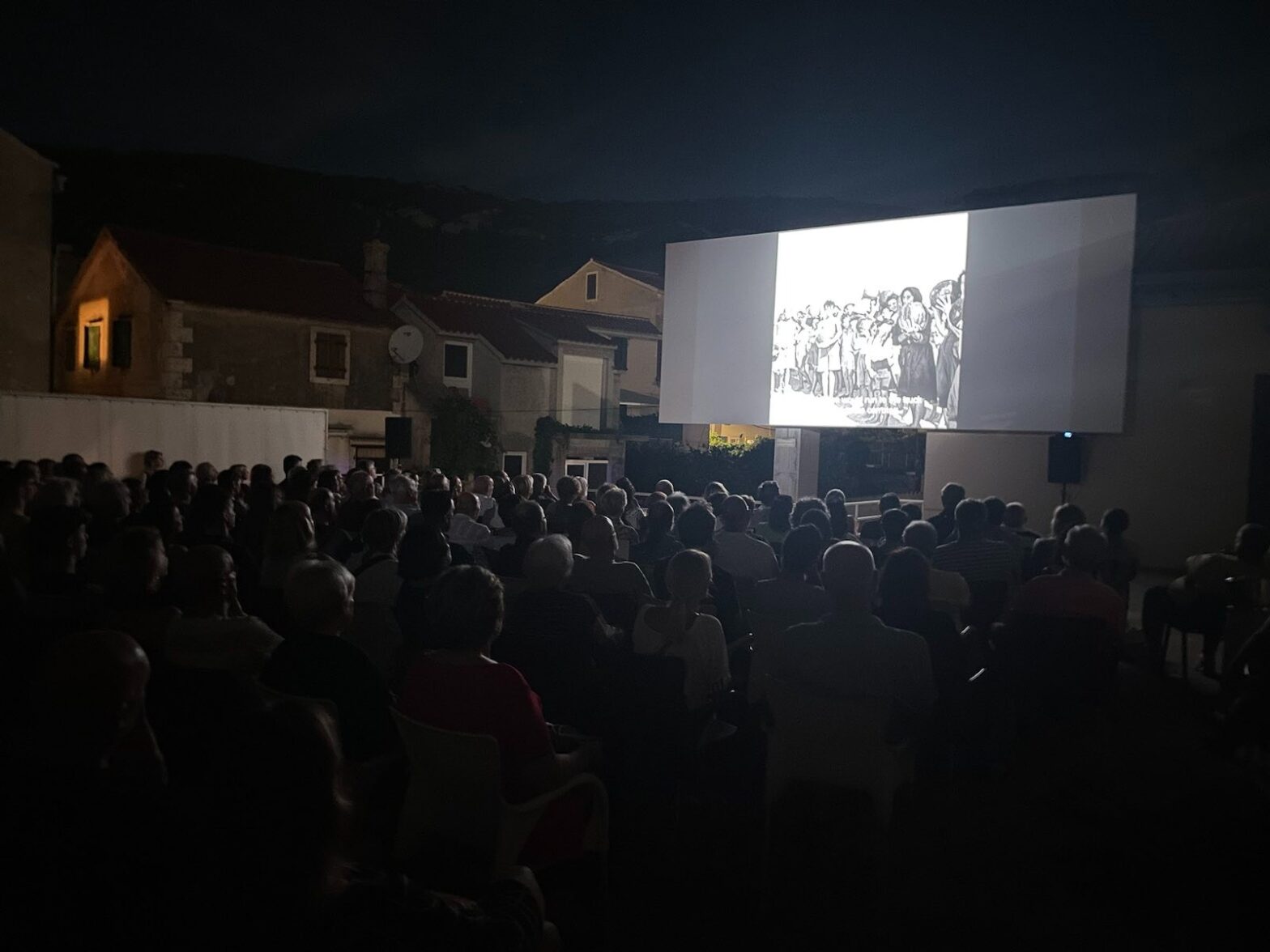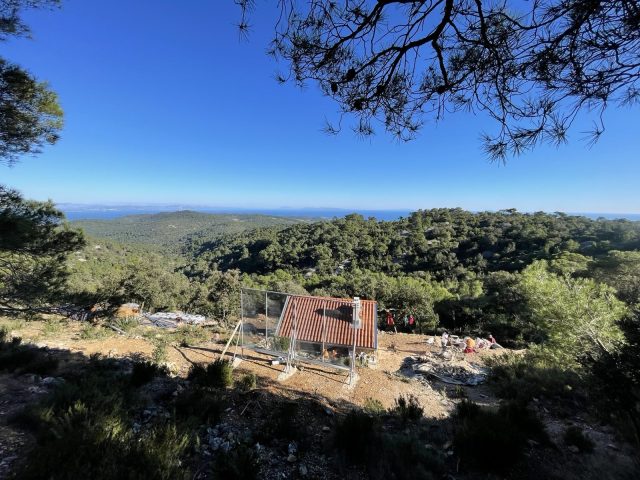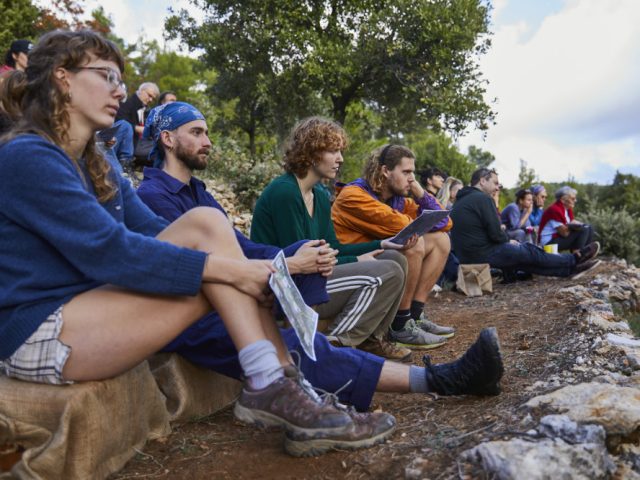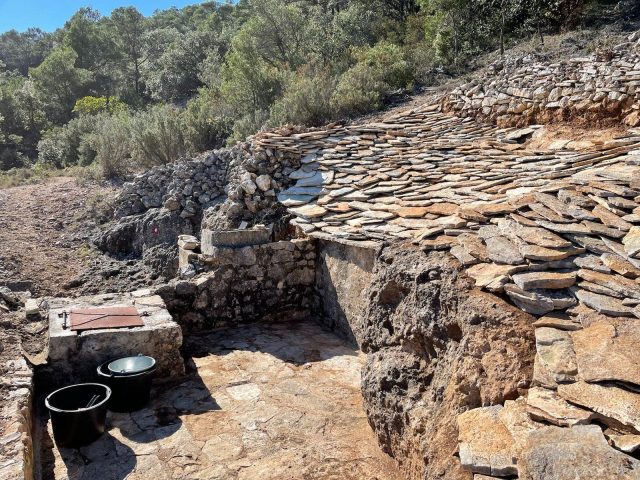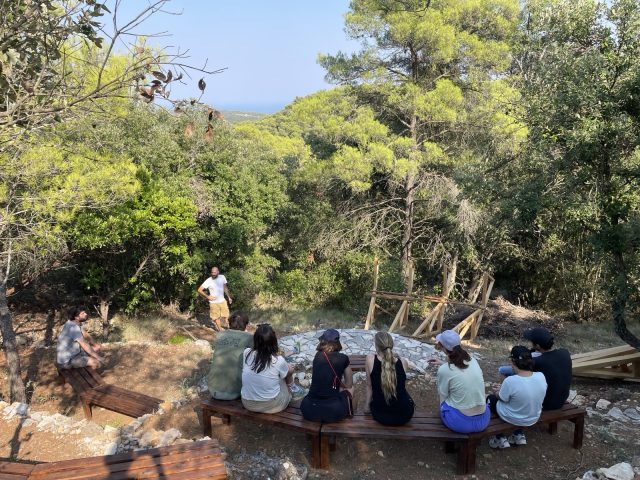In 1944, World War II refugees, mostly women, children and the elderly, travelled from Europe to Africa to live in tents in the middle of the Egyptian desert. They form a kind of experimental communist model village to show the Allies what the new Yugoslavia will look like when the war is over. The documentary is about the self-organised and self-governed community utopia (click to see the: trailer)
Komiža’s open-air cinema set the stage for the inaugural event of the School of Autonomy. The screening of the thought-provoking film “El Shatt – A Blueprint for Utopia” paved the way for a compelling dialogue involving director Ivan Ramljak and individuals who directly experienced the Yugoslav camp in Egypt during World War II, known as El Shatt. This particular subject strikes a deep chord within the people of Vis, given that a substantial number of them can trace their lineage back to the camp’s inhabitants, and a noteworthy few even drew their first breath there.
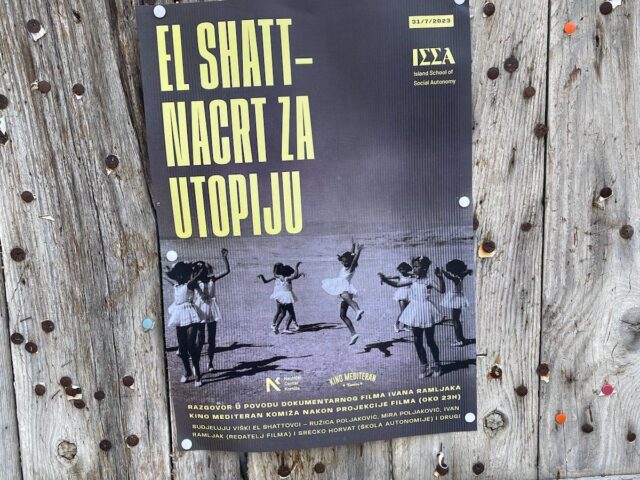
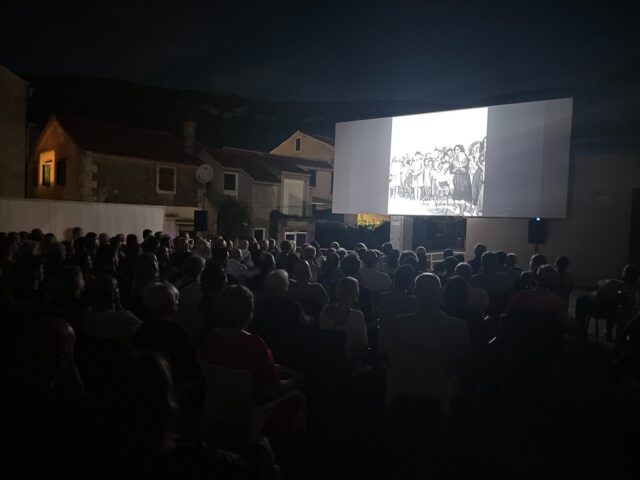
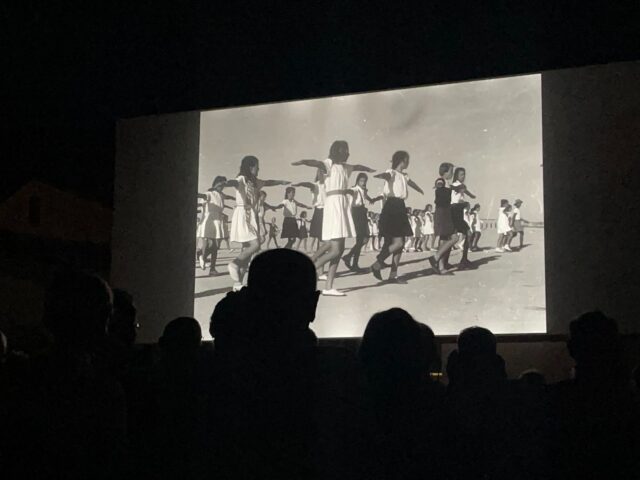
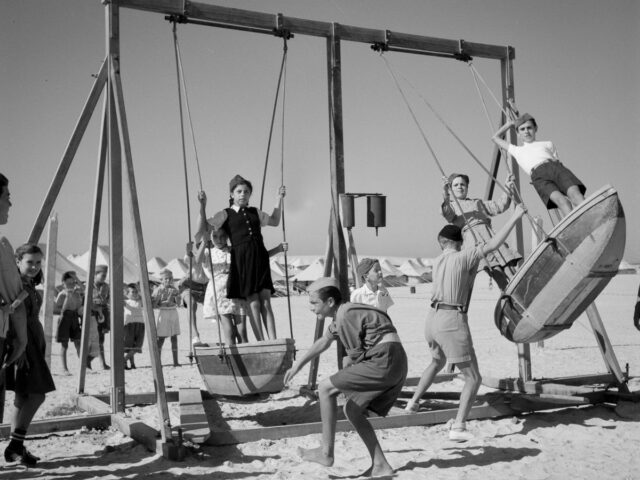
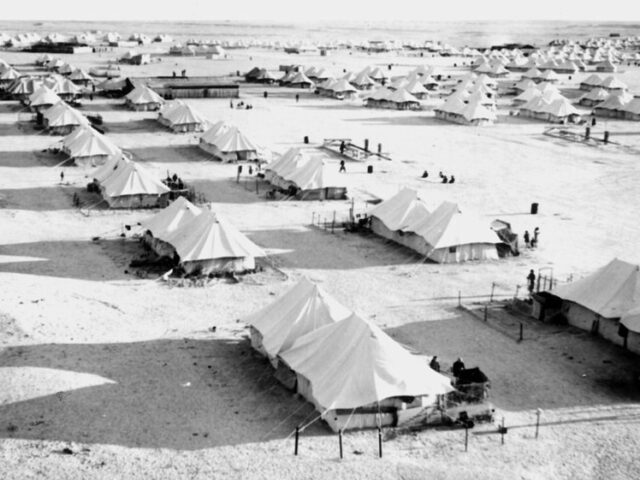
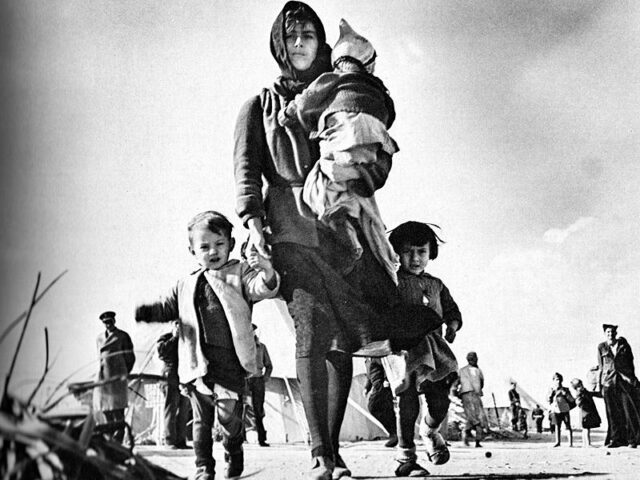
As depicted in these images, the venue was filled to capacity, and the panel discussion following the film was vibrant and engaging. Read more
It was in that moment that I experienced a true sense of freedom… Those were indeed times of greater optimism. Happiness and solidarity were more prevalent, unlike the present day. Back then, we possessed fewer material belongings and found joy in sharing, whereas now, despite having an abundance, we often display selfish tendencies…
Resident of El Shatt
